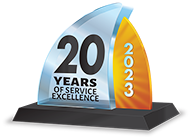Drug or Alcohol Addiction in DOT Jobs
If you are a DOT employee suffering from a drug or alcohol addiction you will not be able to perform safety-sensitive functions until you have successfully met with a Substance Abuse Provider (SAP). All safety-sensitive employers are mandated to perform random; reasonable suspicion; post accident; return-to-duty and follow-up drug & alcohol testing. This ensures that all DOT employees are performing their work safely and keeping others out of harm’s way. If you fail or refuse a drug or alcohol test you will be taken out of your position until you complete DOT SAP return-to-duty process.
When you are suffering from a drug or alcohol addiction it not only becomes detrimental to your personal life but it affects your career as well. If you are performing safety-sensitive duties, such as driving a commercial vehicle, you put the public in danger. Being responsible for providing a safe work environment not only benefits you but your co-workers and the traveling public as well. A drug or alcohol addiction while working in a safety-sensitive position breaks the DOT rules on drug use and alcohol misuse.
Why Me? DOT Drug Testing and Drug or Alcohol Addiction
Understanding the need for drug and alcohol-free DOT employees, Congress passed “the Omnibus Transportation Employee Testing Act of 1991.” If a DOT mandated employee is suffering from a drug or alcohol addiction it will affect their employment. Anyone working in a DOT mandated position (including those who work in “aviation, trucking, including school bus drivers, railroads, mass transit, marine and pipelines industries”) is required to pass a test while they are applying for their job and often times randomly throughout their employment.
If you fail a DOT mandated drug or alcohol test the result will be reported to your employer and you must be removed from your safety-sensitive position. At this point you must do the following:
- Be evaluated by a qualified SAP
- Successfully complete the treatment or education prescribed by your SAP
- Receive a follow-up evaluation by your SAP to ensure you have complied with their recommendation
- Pass a drug or alcohol test
“You will also be subject to unannounced “Follow-Up” testing for drugs and/or alcohol. The Return-to-Duty and Follow-Up drug tests will be conducted under direct observation.”
If you suffer from an addiction and it has affected your employment, we can help. SAP Referral Services will schedule you an appointment with a SAP in your geographic region so that you can begin the return-to-duty process and get back to work. For more information on our services, or to enroll in our FastTrack Enrollment program, visit our Employee page.
source: Employees


